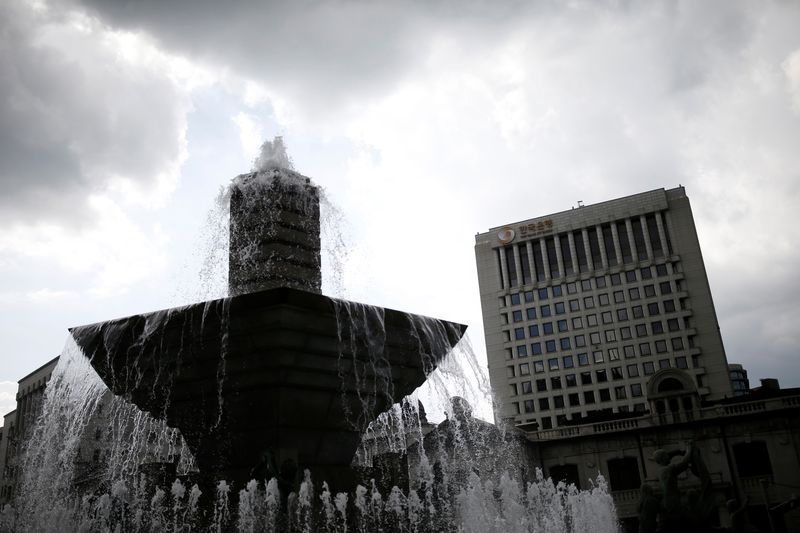BENGALURU (Reuters) – The Bank of Korea will keep its key interest rate at 3.50% on Thursday and cut it next quarter after the U.S. Federal Reserve likely begins easing in September, according to a Reuters poll.
The benchmark rate has been at 3.50% since January 2023. With inflation rising 2.6% in July from an 11-month low of 2.4% in June, moving further away from the central bank’s 2% target, the BOK may need to see prices stabilising before it starts to ease policy.
The Korean won, which has lost over 3% against the dollar this year and is one of the worst-performing emerging market currencies in 2024, was also likely to prevent the BOK from leapfrogging the U.S. Federal Reserve’s first rate cut, which is widely expected to come in September.
A strong majority of economists, 38 of 40, in the Aug. 13-19 poll forecast the central bank would keep its base rate unchanged at 3.50% on Aug. 22. The remaining two predicted a 25 basis point cut to 3.25%.
Although two board members said in July they were open to rate cuts, economists cautioned such a move could exacerbate house price increases in Seoul, heightening concerns in a country with one of the world’s highest household debt-to-GDP ratios, at 104.3% in the first quarter.
“The BoK will continue to signal a more dovish stance, albeit cautiously, given persistent concerns about rising home prices and the associated financial stability risks,” wrote Krystal Tan, economist at ANZ Bank.
“Our base case is still for the BoK to kick off its rate easing cycle in October, following a likely Fed pivot in September. The government is also set to tighten debt service ratio regulations from September, which should help contain growth in household debt.”
Median forecasts showed no change to interest rates this quarter but predicted a 25 basis point cut to 3.25% in the October-December quarter. This outlook was largely unchanged from a July survey.
Among economists who provided an outlook until the end of 2024, 27 forecast the rate would be at 3.25%, while eight predicted 3.00%.
“We think the BOK will cut rates in October, with inflation higher than expected there is no urgency… to cut as soon as August. Also, house prices in Korea (are) actually quite high at the moment,” said Kelvin Lam, senior economist at Pantheon Macroeconomics.
The BOK has cited growth in household debt and rising home prices as key factors it is monitoring before opening the door to rate cuts. House price increases accelerated in July, with prices in Seoul increasing the most in over four years.

Going into next year, the BOK was expected to cut rates by an additional 75 basis points, bringing its interest rate to 2.50% by the end of 2025, the poll showed.
(This story has been refiled to fix wording in the headline)
To read the full article, Click Here

